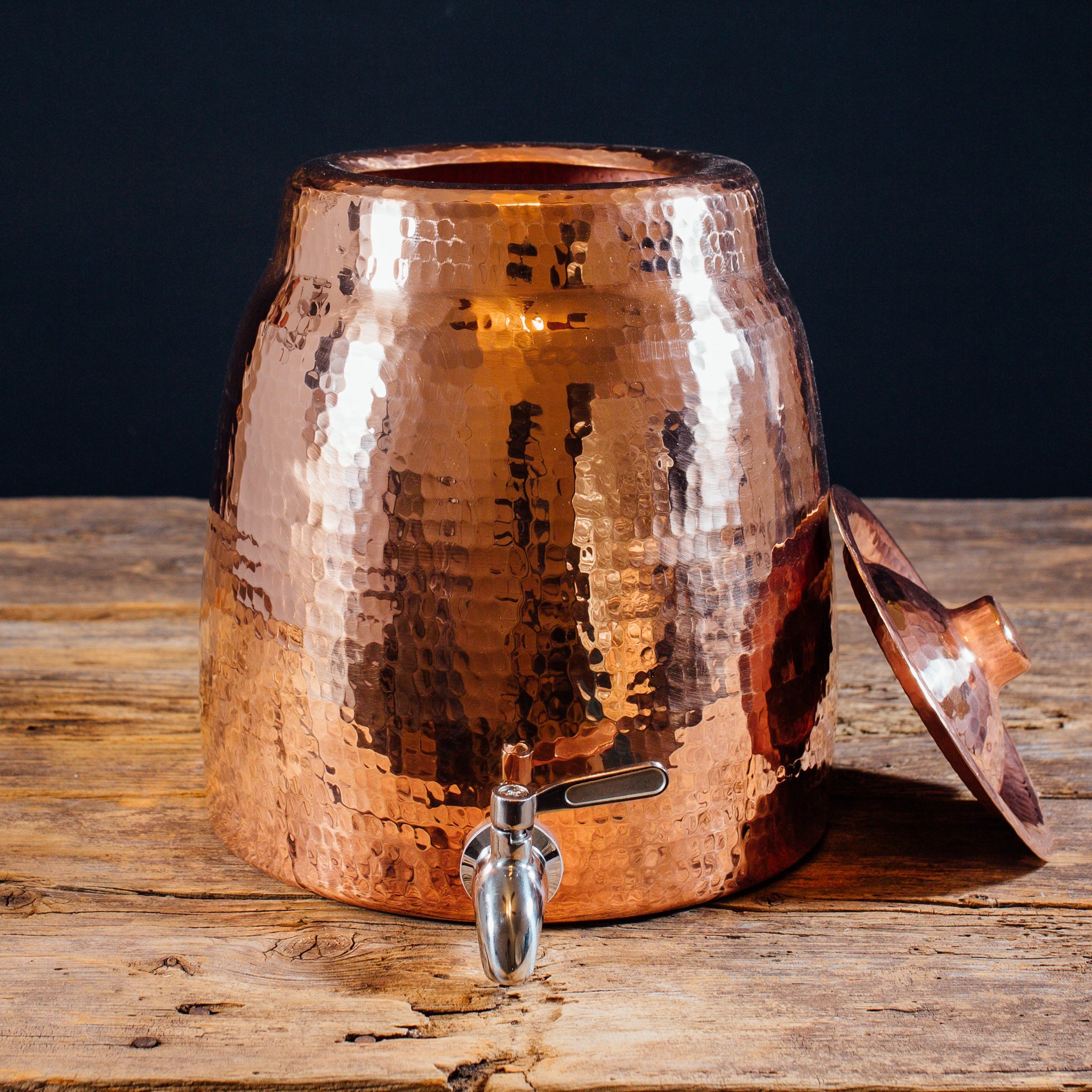Discovering the Health Conveniences of Using Copper Products in Everyday Life
Discovering the Health Conveniences of Using Copper Products in Everyday Life
Blog Article
Exactly How Copper Products Add To Sustainable Practices in Various Industries
Copper products are increasingly acknowledged for their considerable contributions to sustainable methods across several industries, driven by their integral residential properties such as resilience, efficiency, and recyclability. In renewable power systems, for instance, copper enhances the capability of solar and wind modern technologies, while its application in building minimizes waste with longevity. The product's antimicrobial features use promising advantages in medical care settings. As markets look for to take on even more sustainable practices, the duty of copper could verify critical in accomplishing ecological goals. What effects might this have for future advancements in sustainability?
Copper in Renewable Resource
Copper plays a vital function in the improvement of renewable resource innovations, working as an important conductor in numerous applications. Its exceptional electrical conductivity and resistance to corrosion make it an optimal product for electric wiring, which is important in photovoltaic panels, wind turbines, and energy storage space systems. In solar photovoltaic or pv systems, copper is used in the affiliations and circuitry, enabling effective power conversion from sunlight to electrical power.
In wind power, copper is important to the generators and transformers that transform kinetic power right into electric power, making sure optimal performance and dependability. Furthermore, the need for electrical lorries (EVs) is enhancing, with copper being a crucial part in batteries, motors, and charging framework. The shift to EVs considerably enhances the demand for copper, as these vehicles normally use 4 times a lot more copper than standard internal combustion engine automobiles.
As the globe looks for to mitigate climate change and transition to lasting power resources, copper's function comes to be progressively important. The product not only enhances the efficiency and sturdiness of renewable energy systems but also sustains the more comprehensive objective of lowering greenhouse gas discharges and promoting a lasting future.
Eco-Friendly Construction Products
In recent times, there has been a notable change towards the fostering of eco-friendly construction materials in feedback to expanding environmental concerns. This adjustment is encouraged by the demand for sustainable choices that decrease environmental footprints while keeping structural integrity and aesthetic charm.
Copper, known for its longevity and recyclability, has become a key player in this industry. It can be made use of in roofing, plumbing, and electrical systems, adding to power efficiency and minimizing waste. Copper's longevity means fewer substitutes gradually, further enhancing its sustainability profile.
In addition, products such as bamboo, redeemed wood, and reused steel are gaining appeal. These options not just provide minimized ecological impact but additionally advertise source conservation. As developing codes significantly emphasize sustainability, engineers and builders are incorporating these products right into their projects, promoting technology in layout.
The boosting fostering of environment-friendly building and construction products mirrors a more comprehensive dedication to sustainability in the developed setting. By focusing on these materials, the construction industry can significantly lower its carbon impact, straighten with governing standards, and support a much healthier environment for future generations. This trend marks a critical step towards a much more lasting future in building and construction.
Copper's Role in Medical care
Current research studies have highlighted the significant function of copper in healthcare setups, specifically due to its antimicrobial homes. Copper surface areas have been revealed to reduce the existence of pathogens, including microorganisms and infections, by up to 99.9% within a short period. This impressive effectiveness makes copper an indispensable product for high-touch surfaces in health centers, such as doorknobs, bed rails, and IV poles, consequently adding to boosted infection control measures.
In enhancement to its straight antimicrobial impacts, copper also contributes in the broader context of healthcare facility sustainability (Copper Products). By including copper right into clinical tools and furnishings, medical care centers can minimize the incidence of healthcare-associated infections (HAIs), which not only improves individual end results but likewise lowers the prices connected with prolonged hospital stays and additional therapies
In addition, copper's sturdiness and recyclability straighten with sustainable techniques, permitting for liable source monitoring. As medical care systems increasingly focus on both patient safety and security and environmental stewardship, the combination of copper products is becoming more common. This double benefit underscores copper's crucial contribution to a much healthier, more secure, and extra sustainable health care environment.
Sustainability in Transport

Additionally, copper's resilience and rust resistance add to the over at this website long life of transportation facilities (Copper Products). In rail systems, for circumstances, copper parts boost the reliability and performance of signaling and power systems, necessary for minimizing hold-ups and read review energy consumption. Furthermore, copper's duty in eco-friendly energy systems, such as solar and wind, sustains sustainable transportation remedies by supplying tidy power for electrical transportation options
Investments in copper technology not only foster sustainability but additionally stimulate financial growth and job development in eco-friendly sectors. As industries aim to fulfill rigid ecological laws, the application of copper items in transportation emerges as a pivotal approach in accomplishing sustainability objectives and advertising a cleaner, a lot more reliable future.
Copper and Circular Economy
As the world increasingly welcomes sustainability, the function of copper in the round economic situation comes to be ever much more substantial. Copper's innate residential properties-- such as its recyclability, toughness, and conductivity-- position it as a vital product in a resource-efficient economy. The circular economic situation intends to reduce waste and take full advantage of resource use through recycling and reusing products, and copper master this respect.
The steel can be recycled forever without loss of quality, making it an excellent candidate for sustainable methods across various markets, including construction, electronics, and renewable resource. By reprocessing and recouping copper from end-of-life products, markets can considerably lower the need for virgin materials, thus decreasing ecological impacts connected with mining and processing.
In addition, the integration of copper into circular economic situation structures not just saves resources but additionally promotes advancement. Organizations that focus on copper reusing contribute to an extra lasting supply chain, boosting their competition while straightening with governing demands and consumer choices for ecologically responsible items.
Final Thought
In conclusion, copper products substantially add to sustainable techniques throughout multiple sectors. Their necessary duty in boosting renewable resource technologies, promoting environment-friendly building materials, sustaining infection control in medical care, assisting in sustainable transportation, and personifying the concepts of a round economic situation emphasizes the adaptability and relevance of basics copper. By integrating copper into different applications, sectors can achieve higher effectiveness, minimize ecological effect, and line up with global sustainability goals, inevitably cultivating a more sustainable future.

Copper's superb conductivity makes it a favored material in electrical lorry (EV) systems, improving power performance and efficiency. Furthermore, copper's function in renewable power systems, such as solar and wind, supports lasting transportation services by giving tidy energy for electric transportation options.
Their vital function in enhancing eco-friendly energy innovations, advertising eco-friendly building and construction products, supporting infection control in healthcare, promoting lasting transportation, and personifying the concepts of a round economic climate underscores the flexibility and value of copper.
Report this page